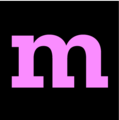Open Sourcing DuraCloud: Beyond the License
by Geraldo Barros | a spotlight on DuraCloud, a 2018 Global Sprint project
Erin, (@eeohalloran), is a librarian by training. She’s into open source software, digital asset management, and preservation. She works for the US-based non-profit, DuraSpace. She lives in Moncton, New Brunswick, Canada.
Bill works at DuraSpace in the development and operations of hosted software services based on open source technology and is interested in sustainable models which allow open source software projects to be built and expanded. He lives in Florida.
Erin and Bill were selected to join the current round of Mozilla Open Leaders with their project Open Sourcing DuraCloud: Beyond the License.
I interviewed Erin and Bill to learn more about Open Sourcing DuraCloud: Beyond the License and how you can help at Mozilla’s Global Sprint 2018.
What is Open Sourcing DuraCloud: Beyond the License?
Our goal is to build up a community around DuraCloud, which is a suite of open source software for managing long-term digital preservation. Digital preservation impacts everyone. The software (and service of the same name) is used today to preserve academic, cultural heritage, and research data. DuraCloud connects curators of digital content (like librarians and archivists) to storage providers (like Amazon Web Services, the Digital Preservation Network and Chronopolis). It duplicates content across providers and performs integrity checking to verify that stored content remains unchanged and undamaged over time.
We want to make DuraCloud and digital preservation practices more accessible in general. To do so, we want to develop materials to explain why this is important, build up a community of users, empower existing users, and create ways for people to be a part of the future of DuraCloud in whatever capacity makes sense to them.
Why did you start Open Sourcing DuraCloud: Beyond the License?
DuraCloud’s first major release came out in 2011. The same year we launched a DuraCloud service. The service has seen steady growth but a community to support the software never materialized. Then, in 2017, two organizations asked for assistance installing and using DuraCloud. We were thrilled! We used these new installations as catalysts in our efforts for DuraCloud community building.
Although we have a lot of experience managing open source projects (we are involved in the Fedora, DSpace and VIVO projects) we wanted to start our community building efforts as part of the Mozilla Open Leadership Training Series. We had heard wonderful things about the training series from Kaitlin Thaney (one of our board members) and wanted to learn more about Mozilla’s community building best practices. We knew we’d learn some great tips that could be applied to DuraCloud and our other open source projects as well.
What challenges have you faced working on this project?
Finding time to dedicate to the project is always a challenge. We work for a small non-profit and are involved in many wonderful initiatives. One great thing about being involved in the 12-week training series is that there is a defined period of time to dedicate to kicking the project off right. To do so we made a time commitment and stuck to it. I think that will carry forward after the training series is complete.
What challenges are you facing to make DuraCloud project open?
There’s an education component to digital preservation that has been a challenge for us. We know how valuable DuraCloud is for long term digital preservation but we need to get outside of our bubble and explain it to people who aren’t in our field.
What kind of skills do I need to help you?
Any and all skills! Our communities typically include librarians, archivists, and technologists but we want to underline that anyone is welcome to spend the Global Sprint with us.
We are looking for people who are new to DuraCloud from any field as well as current DuraCloud customers/users and people who are interested in Java development.
As a starting point for working together, we created Github issues describing tasks such as reviewing and improving documentation, testing DuraCloud, creating instructional videos, brainstorming new marketing ideas, and more.
How can others join your project at #mozsprint 2018?
So many ways! We created a Mozilla Global Sprint page in our DuraCloud Github repository listing all of the ways people can participate: https://github.com/duracloud/duracloud/blob/master/MOZSPRINT.md
#1 If you are new to DuraCloud, you’ll want to start by checking out the README, which will give you an introduction to the project.
#2 Introduce yourself, let us know who you are and how you’d like to get involved
#3 Join the conversation on Gitter.
- Was there something in the README or about the project you didn’t understand or want to know more about? Just ask.
- Do you have contribution ideas you’d like to discuss with the project leads? Just mention @bbranan, @heathergreerklein, or @eeohalloran_twitter.
#4 Review the issues to find a place to jump in and help. If you have questions, leave a comment on the issue or ask in Gitter.
#5 Not sure where to start? Try one of these:
#6 Join one of our Sprint Standup calls. These will be used for status updates and to get answers to questions:
- Calls will be at: 10 am EDT, 1 pm EDT, 5 pm EDT (Click on the time link to see your local time)
- Join the call using this link from your laptop or mobile device
- OR (in the US) call: 646–876–9923 (Meeting ID: 245 651 474)
- OR (non-US) call using an international call-in number (Meeting ID: 245 651 474)
Join us wherever you are May 10–11 at Mozilla’s Global Sprint to work on many amazing open projects! Join a diverse network of scientists, educators, artists, engineers and others in person and online to hack and build projects for a health Internet. Register today
This post by Geraldo Barros is licensed under a Creative Commons Attribution 4.0 International License.
